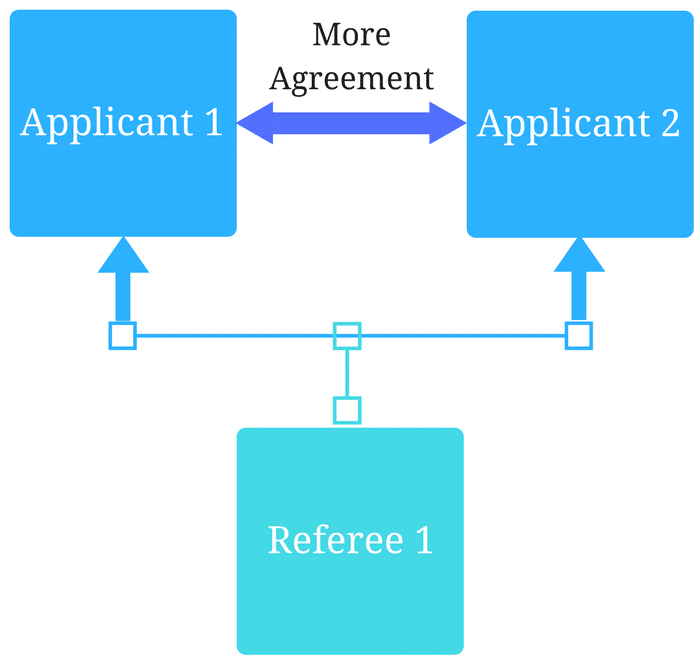Admissions with Purpose: Finding the Right Students for UT Tyler’s Medical School

November 23, 2023
This week on the Holistic Success Show, we had the privilege of hearing from Dr. Brigham C. Willis, the Founding Dean of the University of Texas at Tyler School of Medicine. Dr. Willis shared his remarkable journey establishing a brand-new medical institution in the heart of East Texas.
The UT Tyler School of Medicine stands as a testament to the commitment to rectify the medical imbalances prevalent in the East Texas region. Driven by a mission to empower local students, the school looked to innovative admissions and curriculum approaches – all in just 18 months.
Dr. Willis’s insights offer a glimpse into the dedication and innovative thinking required to shape the future of medical education in the region.
What is it like to build a medical school curriculum from scratch in 18 months?
“Well, the short answer is it’s a whirlwind.”
That’s Dr. Willis’s response when asked about creating an entire medical curriculum for the University of Texas at Tyler School of Medicine. “There’s chaos every single day, but a good kind of chaos. What we’re trying to do is really serve an amazing mission and vision.”
The mission of UT Tyler is to address the health disparities in a very rural and underserved region of East Texas, with the additional aim to recruit and build up applicants from the region. This informs the whole approach of the project. Everything proceeds from the mission, including the type of people they bring on board, to the design of the curriculum and its programming.
It’s a whirlwind, but a whirlwind with a purpose.
How do you find the right students to attend UT Tyler’s medical school?
“Even though they might be the best student from Dallas or Houston, if they just leave right after it serves no purpose,” answered Dr. Willis.
Admissions for UT Tyler was founded on the theory and practice of regional enrollment management. The aim was to bring in qualified applicants who were tied geographically to the area, who wanted to serve their communities. These students had varied backgrounds, including almost a third who would be first-generation college students. This presented unique challenges due to distinct learning methods from their previous educational experiences. UT Tyler approached these challenges with:
- Supportive infrastructure: Prioritizing the establishment of a supportive infrastructure and comprehensive support services, focusing on adapting to a more independent and self-directed learning model, providing tools for students to create effective, personalized study plans.
- Multi-sourced, multi-modal learning: Implementing a flipped classroom model, challenging traditional teaching methods.Offered a variety of resources through multi-sourced and multi-modal content.
- A culture of fostered independence: Aimed to empower students as independent learners. Provided a range of resources and content formats for self-directed learning. Allowed flexibility, from online materials to recorded lectures, catering to different learning styles.
- Application-focused in-person sessions: In-person sessions centered around practical application through cases, simulations, and problem sets.
The term that Dr. Willis uses when talking about the application process at UT Tyler is “right-sizing”. It refers to the adjustment of a traditional standard that might prefer applicants benefited by extra resources, to one that is balanced towards producing the best graduates long term. This isn’t to say that academics are not important to the application process. It means that other characteristics are equally important. It’s a holistic view of a candidate.
UT Tyler supports “right-sizing” by incorporating Acuity’s Casper assessment, a situational judgment test that assesses an applicant’s soft skills, as well as blind admissions to screen out data that wouldn’t be useful to evaluating an applicant.
How do you make the best choice with the data you have?
When handling the question of managing the data for all the incoming students, Dr. Willis stresses the importance of continuous improvement. A strong and ongoing Quality Improvement (QI) process is essential for educational systems.
The institution needs to not only be able to collect data from the beginning of the institution, but establish systems for how to use that information to create ongoing, positive change. In a jovial moment with the students, Willis described them as beta testers, encouraging the students to make changes through their own innovation with the understanding that perfection is not immediate.
What advice do you have for those leading a new medical or health professions program or seeking to make significant changes to their existing school’s practices?
Looking back, Dr. Willis had the following advice for others:
- The mission should come first. All actions, from what you’re building, to who you’re working with, needs to be aligned with the mission of the school or program.
- Don’t make changes solely for the sake of change. Some things may not stand the test of time, but others have and for good reason – make sure that changes come from a place of intentionality.
- Perfection is the enemy of the good. Getting things right often means they won’t get done. Perfection is not achievable, but through a continuous improvement model that’s data-driven, you can get better over time. Progress involves accepting imperfections and moving forward.
Watch or listen to the full episode about UT Tyler’s Medical School now!
Related Articles

How interviews could be misleading your admissions...
Most schools consider the interview an important portion of their admissions process, hence a considerable…
Reference letters in academic admissions: useful o...
Because of the lack of innovation, there are often few opportunities to examine current legacy…
